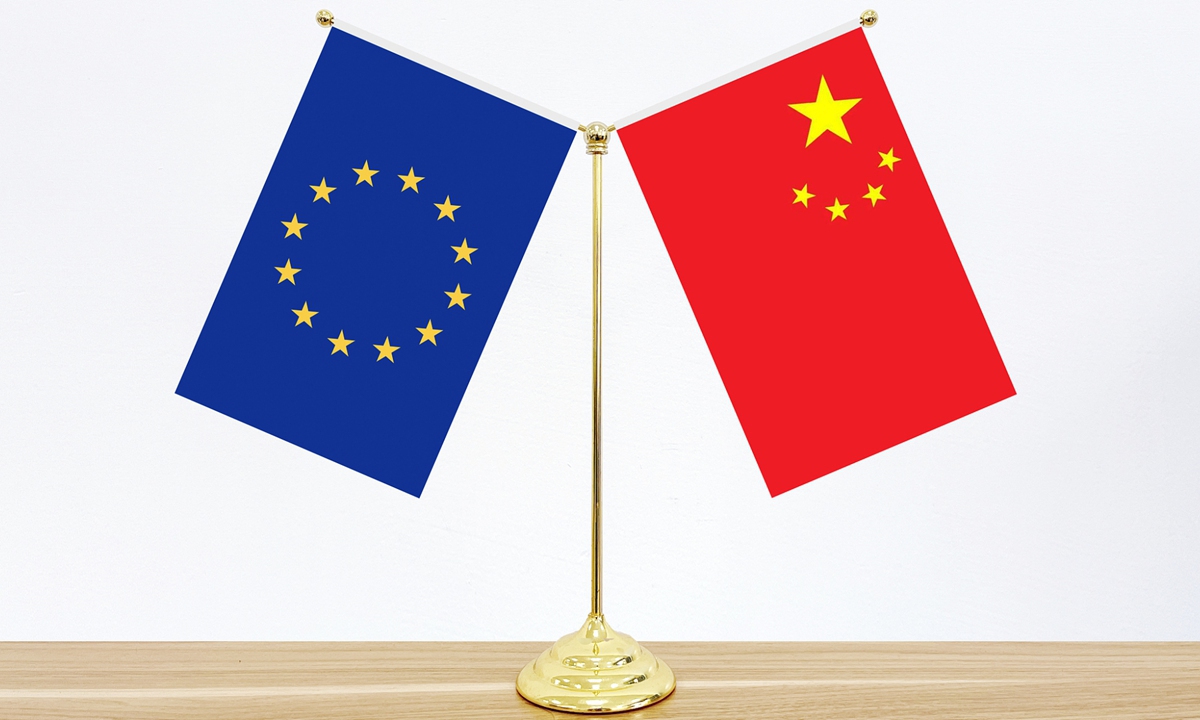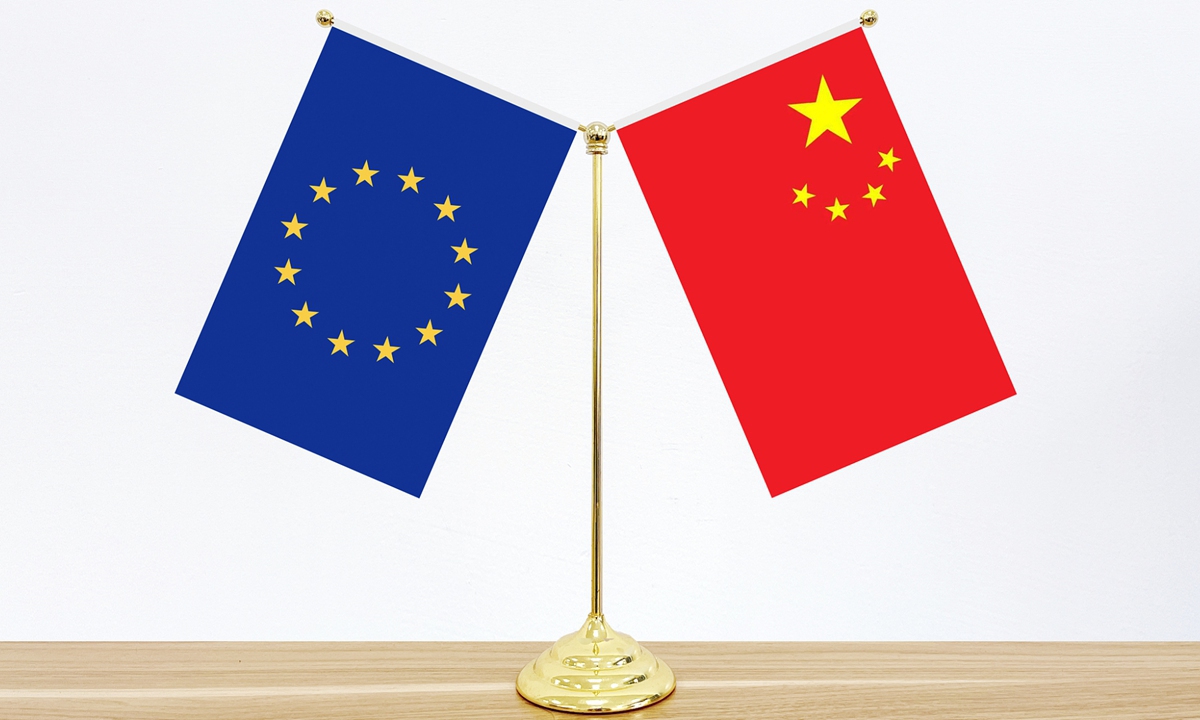
China EU Photo:VCG
The China Chamber of Commerce to the EU (CCCEU) has expressed serious dissatisfaction regarding two investigations launched by the European Commission on Wednesday under the Foreign Subsidies Regulation (FSR) over China-linked companies, calling the FSR “a new tool of economic coercion.”
To date, the European Commission has launched three FSR in-depth investigations, all targeting Chinese enterprises. We express our serious dissatisfaction with the abuse of the new tool by the relevant EU authorities and the use of the FSR as a new tool of economic coercion to interfere with the reasonable and lawful economic operations of Chinese enterprises in the EU’s green and low-carbon transition market, the CCCEU said in a statement sent to the Global Times on Thursday.
Analysts said the latest move by the EU targeting Chinese companies reflects a trend of protectionism against Chinese and other foreign companies operating in the EU, which hurts both the companies involved and the EU economy.
“We are gravely concerned about the consecutive in-depth investigations against Chinese enterprises conducted by the European Commission under FSR in the solar photovoltaic sector,” reads the statement.
“We reiterate our opposition to the excessive discretionary authority granted to the European Commission under the FSR. The Regulation’s overly broad and ambiguous definitions of key concepts, such as foreign financial contribution, not only place undue burdens on enterprises but also potentially discriminate against foreign enterprises, including Chinese ones. This situation is distorting the level playing field for Chinese enterprises operating in the EU,” the CCCEU said.
The chamber urged the EU to promptly enhance transparency and ensure the full protection of the defense rights of Chinese enterprises.
“As Europe and the global economy navigate a critical juncture, particularly amidst the imperative of green transformation, we call for the reduction of barriers to investment, public procurement, and business operations in the EU. It is imperative for the EU to establish a legal and market environment that is fair, transparent, and non-discriminatory towards Chinese enterprises,” the CCCEU noted.
On Wednesday, the European Commission launched two in-depth investigations under the FSR to determine whether two companies with links to China have used state subsidies to underbid rivals for a Romanian solar project, according to a release published by the European Commission.
The first investigation concerns a consortium involving a German subsidiary of LONGi Green Energy Technology Co and the second investigation concerns two subsidiaries of Shanghai Electric Group Co.
“There are sufficient indications that both have been granted foreign subsidies that distort the internal market,” the European Commission said in the release.
Chinese company CRRC, the world’s biggest producer of rolling stock, has withdrawn from a public train tender in Bulgaria worth 610 million euros ($661 million) after the EU launched a probe under FSR, the European Commission confirmed on March 26.
Chinese train maker CRRC’s withdrawal from the Bulgarian train tender adds to the evidence suggesting the EU side has wielded the FSR as a new tool to deter foreign companies, coercing them into withdrawal and subsequent business exclusion, the CCCEU told the Global Times in a previous statement.
“As the Chinese and EU economies are closely intertwined, the EU’s sanctions and crackdown targeting Chinese firms will have a bad impact,” Zhao Junjie, a research fellow at the Chinese Academy of Social Sciences’ Institute of European Studies, told the Global Times.
Zhao noted that the EU’s growing protectionism reflects its internal economic woes and is influenced by rising protectionism in the US.
Analysts also pointed out that Europe’s green transformation cannot be achieved without China. As a global player in many green technologies, China is crucial to the EU’s low-carbon development.
According to solar industry estimates, the manufacturing cost of solar equipment produced in Europe is about twice that of China per watt of installed capacity.



